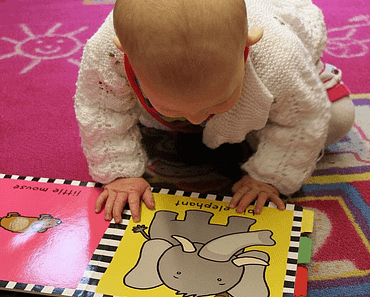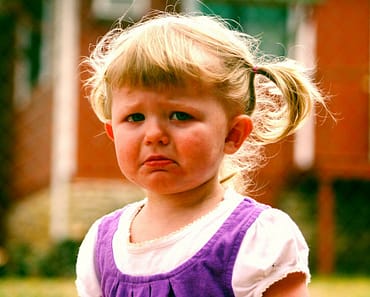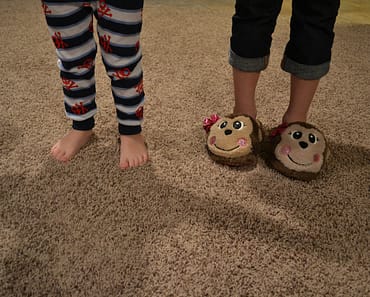As we all know, parenting is probably one of the most important and difficult jobs in the world today. Right now, there’s an entire generation of young children that are raised and educated and that will replace one day our generations.
So, we, as parents are responsible for how the future of our society will look like. Raising the best children should be the main priority of every parent.
But the sad truth is we all have some emotional scars from our childhood or even the adult life and these factors prevent us from being the best parents.
Let’s review ten of these psychological factors standing in the way of good parenting.
- What happens when a parent suffers from serious mental distress? Some psychologists will tell you that parents affected with psychological distress may treat their own children with hostility and rejection.
A common reaction is to push their children away after dealing with something terrible because they just want to be left alone. Studies have shown that when parents reject their children, they cause all kinds of issues in their little ones. These issues include sleep problems and listlessness. It seems like the psychological issues that the parents are facing are projected and harming their children.
In effect, these children may develop psychological issues as a result of this attitude from their parents.
2. Depressed parents can show a total lack of emotion toward their kids.
Depression is a very common mental disorder, but what happens when parents develop it? How does it affect their children?
One study in 2018, revealed that depressed parents do not show proper sentiments or emotions towards their children or their feelings about parenting responsibilities are assumed negative.
To combat this, one researcher proposed a radically different treatment approach; one that focused on the entire family unit instead of the individual alone.
3 Many children show less trust in parents with low self-esteem issues.
Low self-esteem is something most of us have struggled with at some point. So what happens when children see their parents suffering from this? One study found that low self-esteem had an impact on the trust between parents and children. Interesting research shows that self-esteem radically impacts our perception of our own relationships. When we have low self-esteem, we might believe that our relationships are much worse than they actually are.
Parents might believe that they have a strained relationship with their children when really it’s not all that bad.
4. Poor parenting is linked to early psychopathy.
A lot of right now is talking about sociopathy and psychopathy, and it’s been really enlightening.
Psychopathy is characterized by antisocial and immoral behavior; issues with romantic relationships and extreme egocentricity. But did you know that early psychopathy can be caused by poor parenting?
More specifically, one studied from 2017, stated that harsh discipline and insensitivity could contribute to early psychopathy and other behavioral problems. The consequences of this are quite severe.
Many times, parents who try to correct psychopathic behavior at a young age end up making it worse. A child’s mind is changeable when they are young, which means that if intervention isn’t successful during childhood, psychopathy could end up being a permanent thing in the future.
5. Parents who have been abused as children can have less empathy for their kids.
Parents raise their kids with an eye to the past, to their own childhoods. But what happens if these parents experienced abuse when they were young? One study stated that mothers with sexual abuse history in childhood may suffer from greater parenting stress, which can lead to diminished empathy with their own children.
Simply put, this means that mothers who have been abused have a hard time connecting and bonding with their young ones.
Studies have shown that children who grow up without a good initial bond are less likely to be happy and resilient.
6. Anxiety disorder in kids is linked to poor parenting.
Interestingly enough, poor parenting is linked to anxiety disorder in children. New research has found that anxiety disorder is linked to over controlling parents who don’t give their children enough independence. These children find it hard to control their own behavior and achieve independence.
If you’ve been controlled for your whole life, it’s hard to start taking things into your own hands.
7. Irrational and uneducated beliefs in mothers are linked with more behavioral problems in their daughters.
Every parent wants to provide their children with a solid rational education. It’s one of the most important tools you can provide your child with. So, how does education levels in parents impact their children? One study came to the conclusion that younger mothers with lower levels of education are more likely to have daughters with behavioral problems.
8. Lack of parental warmth is linked with higher anxiety.
Different parents have different approaches when it comes to raising their kids. Some like to be very authoritative, while others like to be more laid-back. But when it comes to anxiety in children, a very important factor is how warm parents are towards their children.
This was confirmed by a 2003 study that found that perceived parental warmth was positively associated with active coping and negatively correlated with trait anxiety in adolescents.
9. Authoritarian parents can cause their kids to become depersonalized.
Depersonalization disorder is where people feel like they’re disconnected from their own bodies and thoughts, almost like they’re watching themselves from the outside looking in.
One study examined multiple different parenting styles including authoritarian, permissive, authoritative and indifferent. Among other things, they discovered that authoritarian parents had children which showed higher scores on depersonalization.
10. Crime filled neighborhoods are linked to poor parenting.
First, let’s examine what can cause poor parenting. Research has shown that a parent who lives in a bad neighborhood can be severely impacted by their environment and this can actually affect their children in a negative way as well.
Simply put, this means that bad neighborhoods can result in poor parenting.
Despite these factors, it is within us to change and try to become the best parents from or children.
Please, share this article.







No Responses